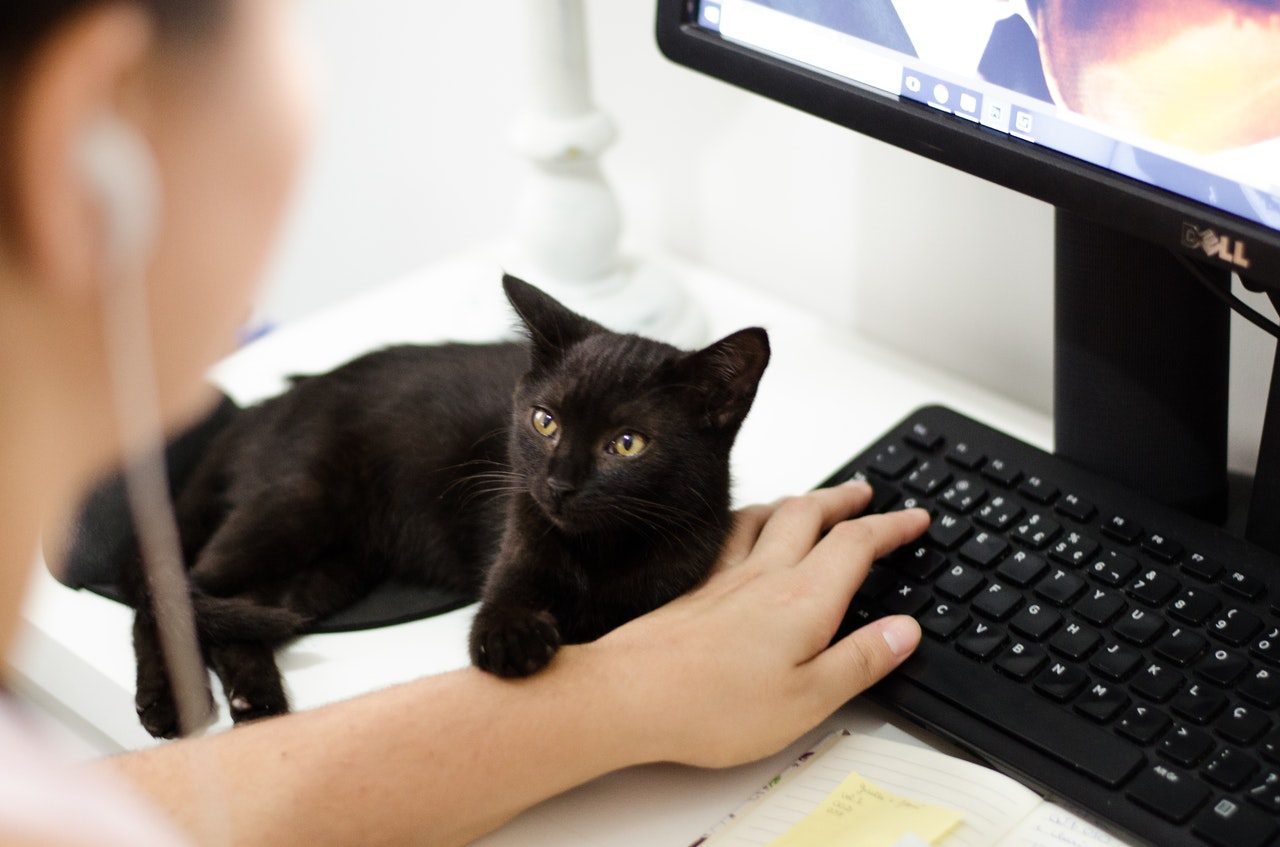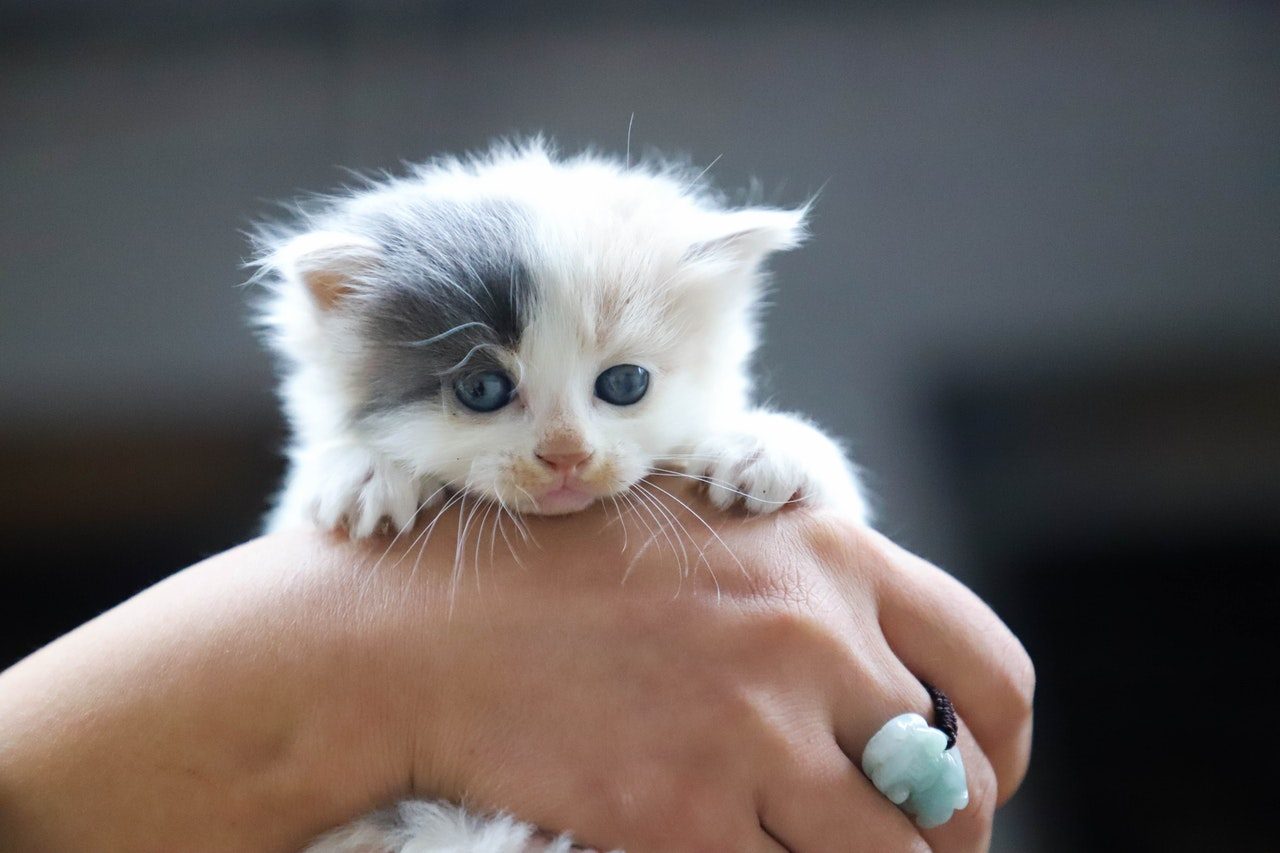Whether you decide to adopt a new feline friend on National Kitten Day (make a note on your calendar; it’s every July 10th), or you’ve decided you can’t wait another minute, you’re in luck. Not only are kittens some of the most precious creatures on the planet, but adopting a kitten also can actually improve your health.
You may be wondering, “Why adopt a kitten instead of purchasing one? There are ethical breeders.” While that’s true, adopting a kitten from a no-kill shelter makes room for another kitten who might otherwise be taken to a shelter that does euthanize animals to prevent overcrowding, so you’re saving money and saving lives. Let’s look closer at the many ways adopting a kitten is good for your health.

You’re less likely to be lonely
According to a study conducted by the Human-Animal Bond Research Institute, 80% of pet parents agree that having a fur baby helps them feel less lonely. If you work from home, you may feel you’re missing out on daily interactions, but adopting a kitten can help. In another study, Lee Zasloff and Aline Kidd discovered that having a pet combats feelings of loneliness in women who live alone. While the Zasloff and Kidd study wasn’t specific to kittens, we suspect adopting a kitten may be even more advantageous.
Unlike older cats, who are more self-sufficient, kittens require more care and attention. While kittens are still more low-maintenance than puppies, you’ll be hard-pressed to feel lonely with a kitten crawling on your lap. Adopting a kitten also means you can start training them from a young age, so they’ll be more adaptable to learning not to interrupt your Zoom calls, chase your feet under the blankets, bite at your fingers, or walk across the counters than older cats who are already set in their ways.

Cats can help heal injuries and infections
If you have an infection, arthritis, a broken bone, a pulled muscle, or a torn tendon, cuddling your new kitten may be able to help you heal faster. Recent studies have shown that frequencies between 18 and 35 hertz can boost your immune system, improve joint mobility, reduce inflammation, and help you heal. The frequency of a cat’s purr is around 20–150 hertz, which puts it well within the range of potentially repairing bones, tissues, and joints.
Our feline friends improve our mental health
In addition to helping you heal physically, the sound of a cat’s purr may help lower your blood pressure and potentially alleviate anxiety. A study conducted by Indiana University Bloomington discovered that simply watching cat videos improved viewers’ moods, lowered their stress levels, and increased their energy levels. Just what we’ve always wanted — scientific proof that all those hours spent on YouTube binge-watching cat videos was actually good for us.
Cat owners have a lower risk of heart disease
Due to improper diets, sedentary lifestyles, and stressful jobs, many Americans are at risk for heart disease. Around 655,000 Americans die from heart disease each year — one out of every four deaths — and heart disease is currently the leading cause of death for both men and women in the United States. Despite these harrowing statistics, we have some good news. Owning a cat can lower your risk of heart disease and stroke by up to 30%.
Your kids may have fewer allergies if they grow up with cats
According to the National Institutes of Health, children exposed to cats before they’re a year old are less likely to develop allergies to pets, grass, ragweed, and numerous other known allergens. Additionally, having a pet in your home teaches children how to be gentle with animals. As your child grows up, they’ll learn more about caring for the family cat, which will teach them responsibility and empathy for all creatures.

Sleeping with your cat can improve the quality of your sleep
Most of us don’t get as much sleep as we should, but adopting a kitten can change that. The Mayo Clinic Center for Sleep Medicine found that 41% of pet parents said that sleeping with their pet helped them sleep better. Interestingly enough, a UK-based study found that most people actually prefer to share their bed with their cat instead of a human partner.
Kittens are adorable, playful, and affectionate. Adopting a kitten from a shelter not only saves lives, but it also changes your life for the better. Whether you fall in love with a snuggle bug or a more independent kitty, opening your home up to a kitten will provide you with years of companionship and entertainment. Best of all, now we have scientific proof that adopting a kitten will also improve your health.



